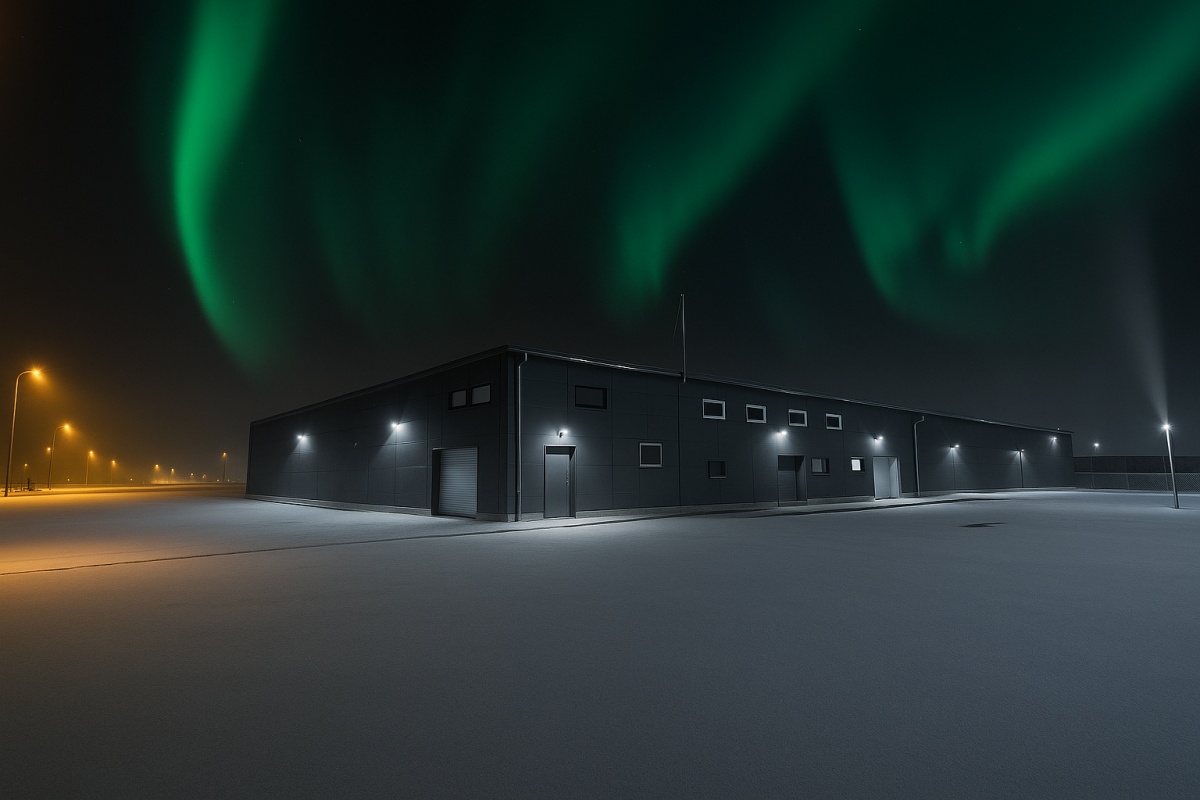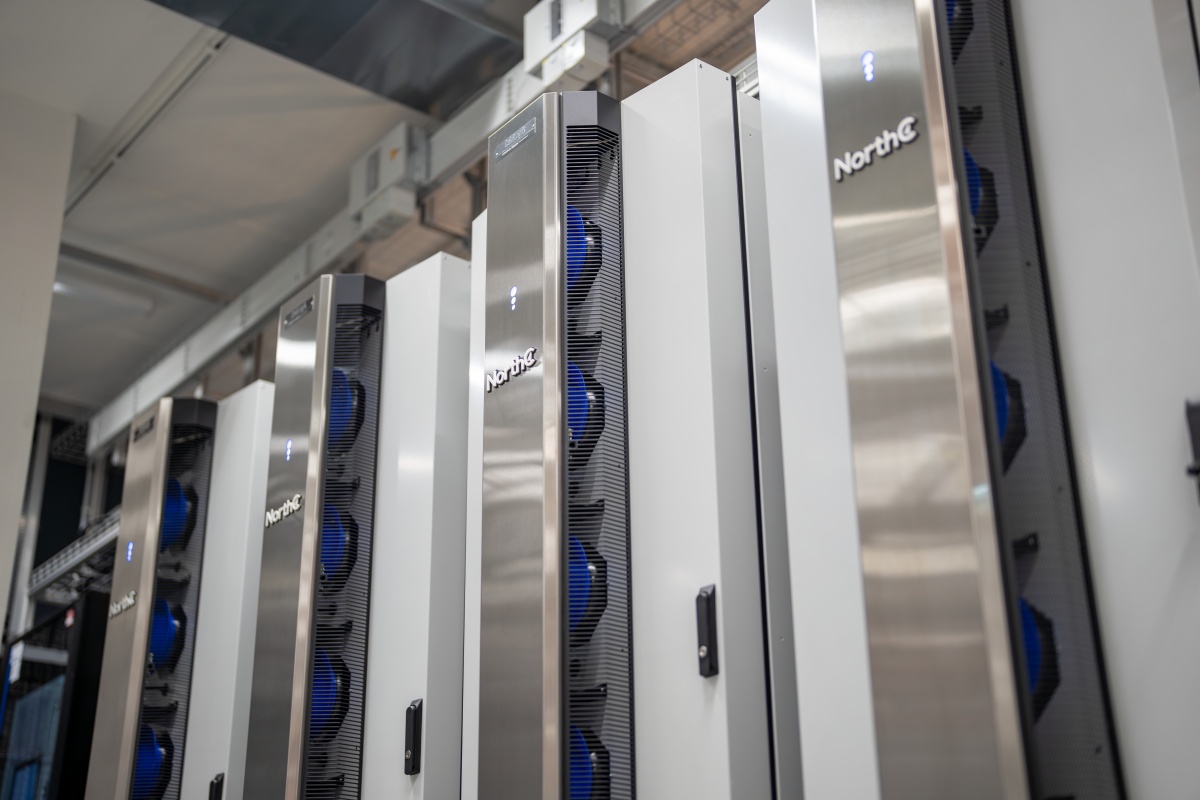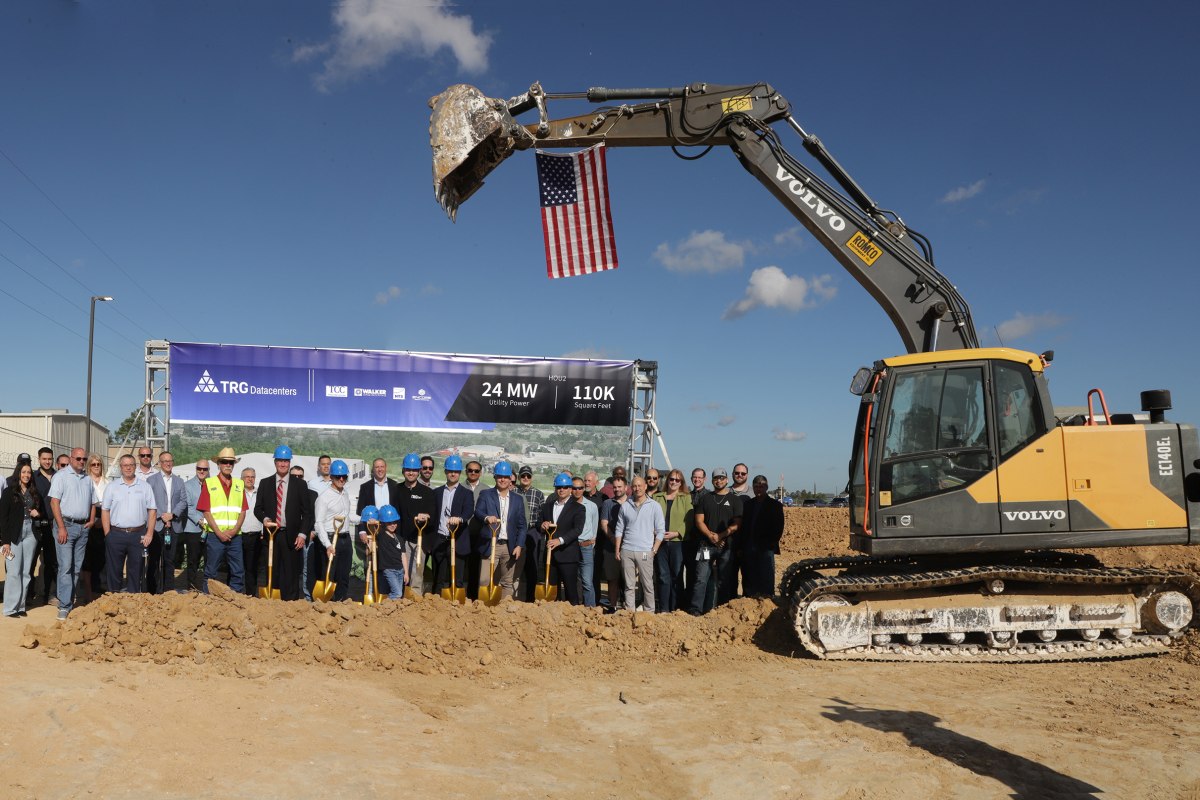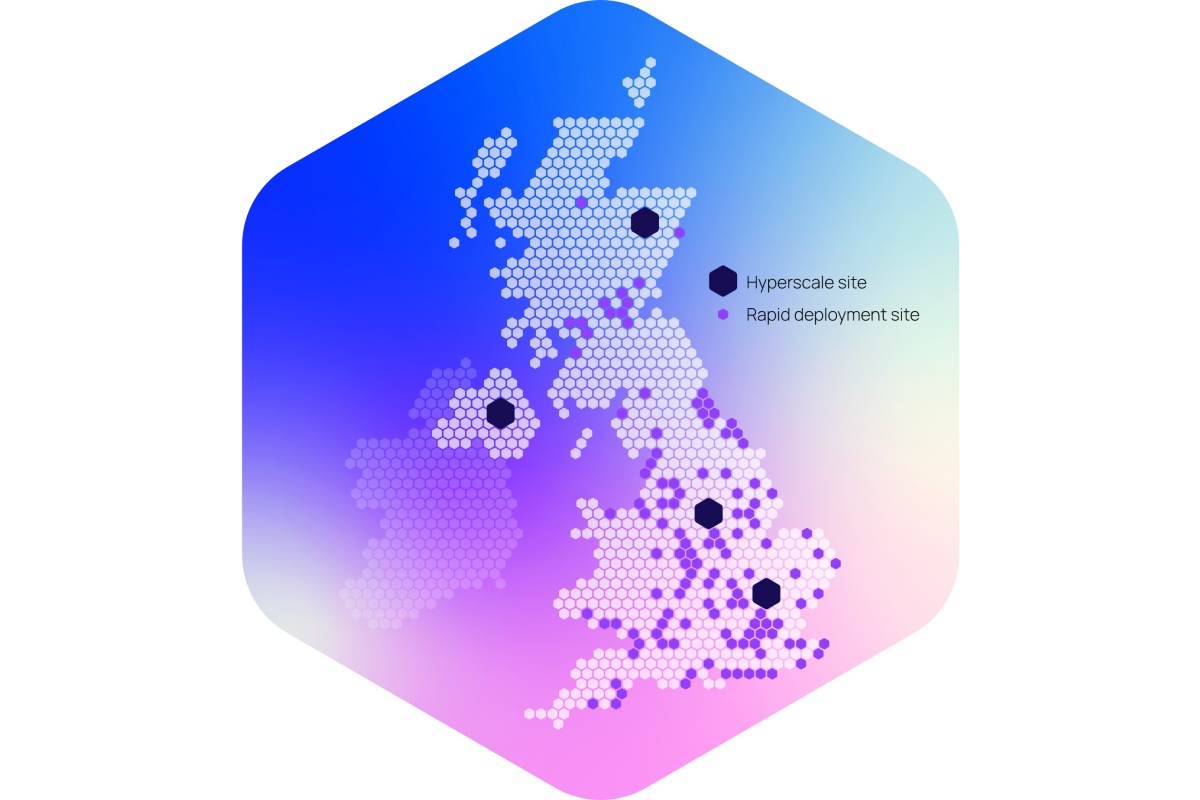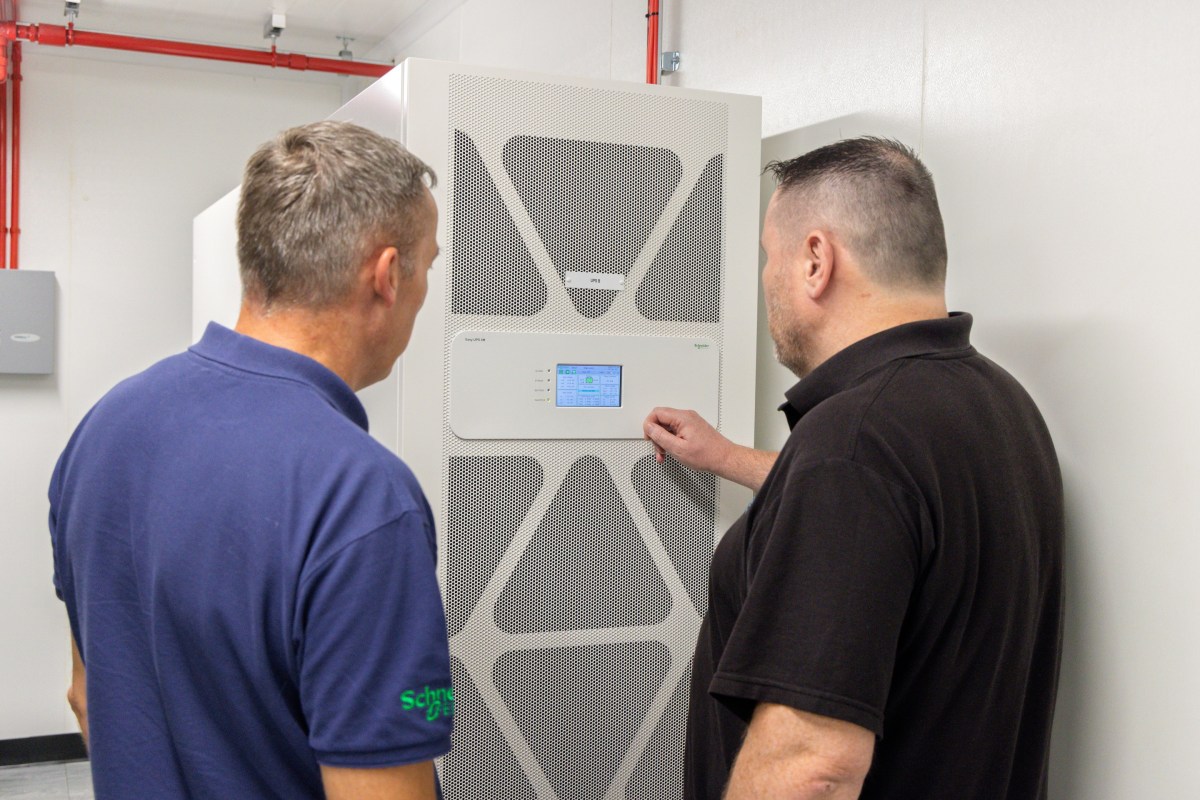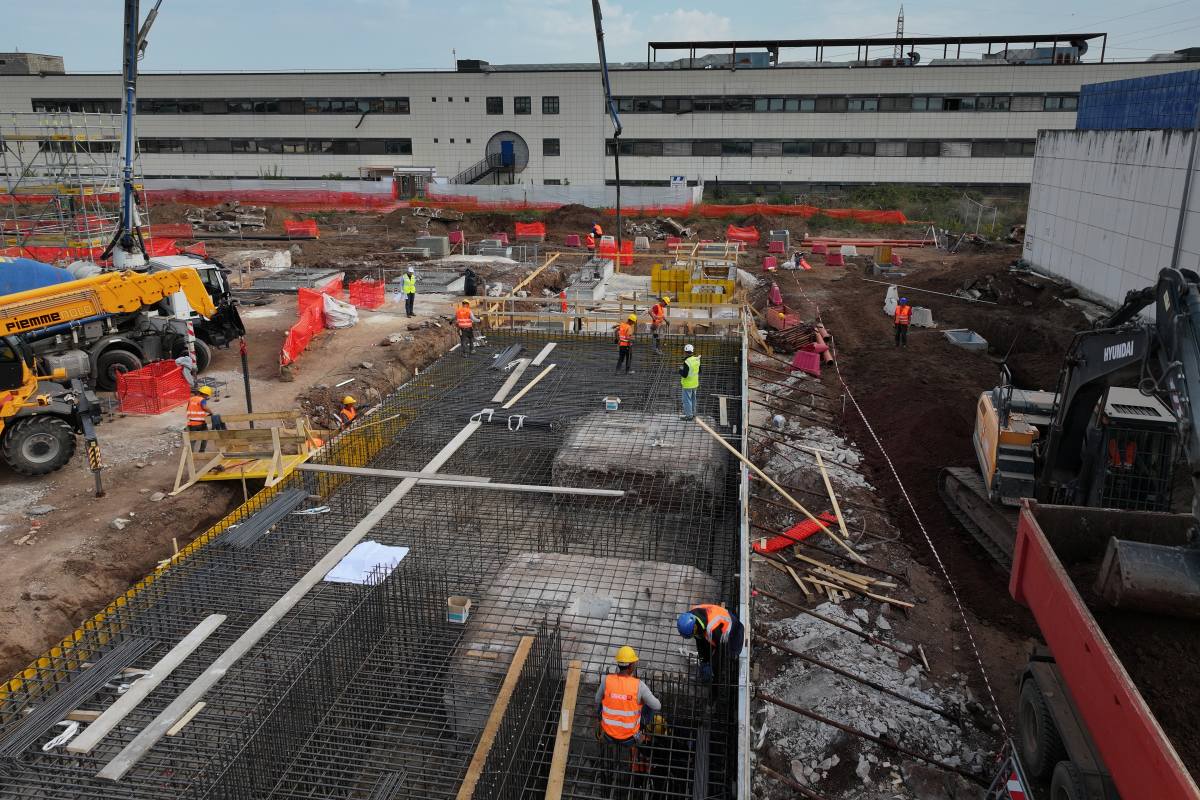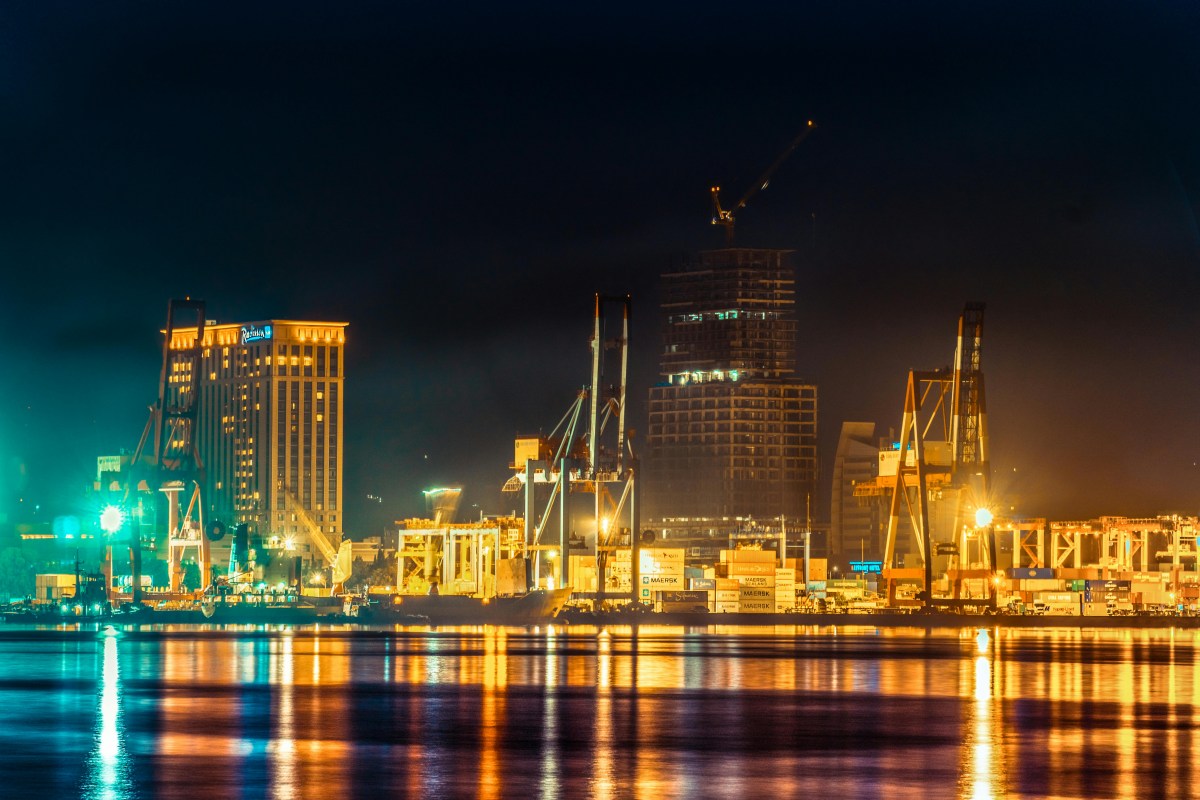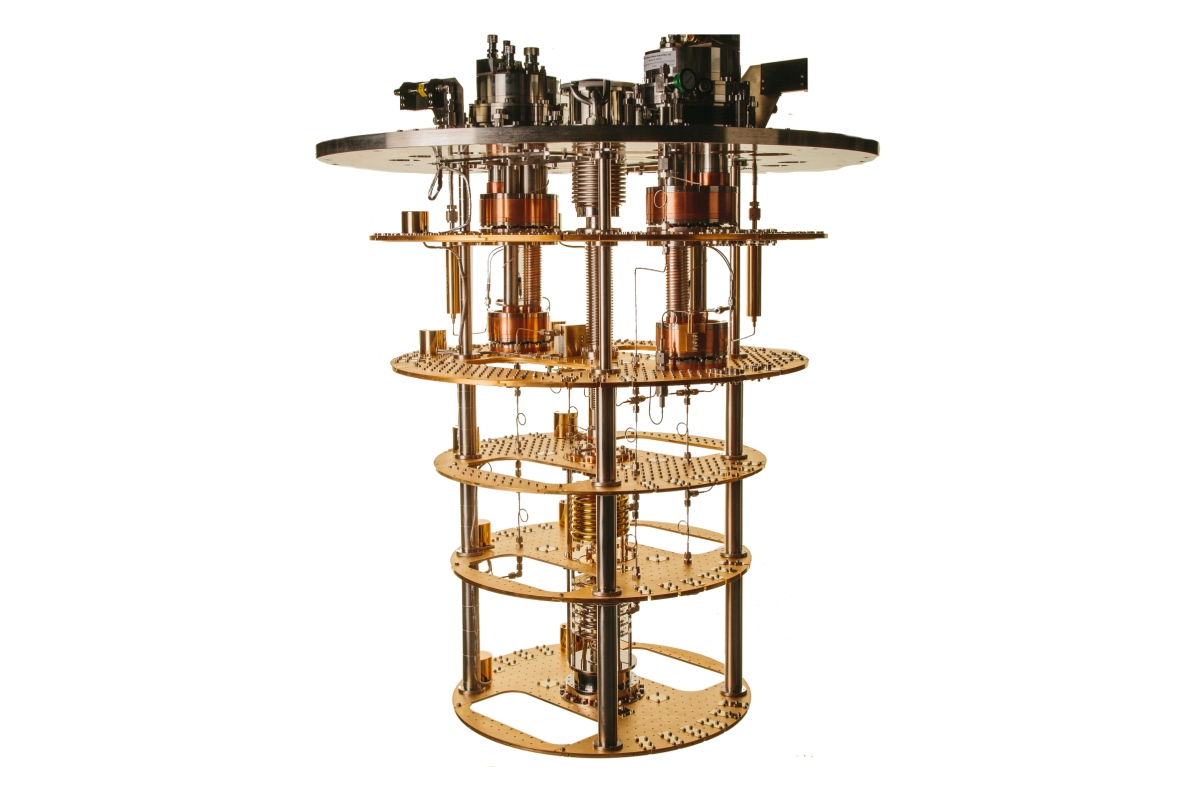Data Centre Build News & Insights
Data Centre Build News & Insights
Data Centre Projects: Infrastructure Builds, Innovations & Updates
News
Sustainable Infrastructure: Building Resilient, Low-Carbon Projects
Verne, Nscale planning 15MW AI deployment in the Nordics
Verne, a provider of low-carbon high-performance data centres across the Nordics, has agreed a 15MW AI infrastructure deployment with hyperscaler Nscale, expanding high-density, renewable-powered computing capacity across its Icelandic campus.
The project centres on liquid-cooled GPU infrastructure and is set to run throughout 2026.
The installation will comprise around 4,600 NVIDIA Blackwell Ultra GPUs, with an 85% liquid-cooled and 15% air-cooled configuration designed to maximise efficiency within Verne’s existing facilities.
It is one of the region’s largest liquid-cooled GPU projects and is expected to support lower energy use and reduced environmental impact.
Iceland’s renewable electricity and natural free-cooling conditions position it as a suitable location for high-density AI workloads.
Nscale selected Verne based on its experience in renewable-powered data centres and its ability to support large-scale training and inference environments.
Large-scale renewable AI capacity across the region
“The pace of change in AI infrastructure is extraordinary," notes Dominic Ward, CEO of Verne. "As the demand for GPU capacity accelerates, availability of clean, renewable power has become as important as raw performance.
"Partnering with Nscale, whose expertise is redefining how AI infrastructure is delivered responsibly at scale, demonstrates how the Nordics are fast becoming a strategic hub for sustainable AI growth.”
Philippe Sachs, Chief Business Officer and President of EMEA at Nscale, adds, “As compute demand grows, we’ve worked with partners throughout the world and the Nordic region to deliver sustainable solutions to meet that demand.
"The Nordics offer a uniquely sustainable foundation: abundant renewable energy and natural cooling. With our existing operations in Norway, we’ve seen first-hand how the region powers low-carbon, sovereign-grade AI infrastructure."
David Hogan, Vice President Enterprise at NVIDIA, comments, “The collaboration between Verne and Nscale showcases how NVIDIA technology can enable high-performance AI factories with a focus on energy efficiency and sustainability.
"Deployments like this reflect how organisations are scaling the next generation of AI workloads responsibly, using innovative cooling and renewable-powered data centres.”
The agreement aligns with Verne’s wider European expansion, which includes new campuses planned in Finland and early-stage development activity in France.
The companies state that these projects contribute to the Nordics’ growing role as a centre for renewable-powered AI infrastructure.
For more from Verne, click here.
Joe Peck - 20 November 2025
Data Centre Build News & Insights
Data Centre Infrastructure News & Trends
Data Centre Projects: Infrastructure Builds, Innovations & Updates
Innovations in Data Center Power and Cooling Solutions
NorthC, Legrand upgrade Münchenstein (Basel) data centre
NorthC Data Centers, a Dutch provider of sustainable data centre and colocation services, has partnered with Legrand, a French multinational manufacturer of electrical and digital building infrastructure products, to upgrade its Münchenstein (Basel) site, introducing higher-density infrastructure to support AI, hybrid-cloud, and high-performance computing workloads.
The project was completed within a six-month window to meet rising regional demand for GPU-driven environments.
NorthC operates regional facilities across Switzerland, the Netherlands, and Germany. The company sought to replace low-density systems and traditional air-cooling at the Münchenstein site to accommodate higher power and thermal loads associated with modern AI deployments.
Legrand, through USystems, supplied rear-door heat exchangers for rack-level cooling. These units are mounted to the rear of server racks, absorbing heat from server exhaust and transferring it through a heat exchanger before returning cooled air to the data hall.
The closed-loop design supports higher rack densities while improving energy performance.
The cooling equipment was installed while the data centre remained live, a process described by Wolfgang Voigt, Münchenstein Data Center Site Manager at NorthC, as “like open-heart surgery.”
Focus on efficiency and future expansion
NorthC reports that energy consumption at the site has fallen by about 80% following the cooling upgrade and broader infrastructure improvements.
The facility now supports GPU-based clusters, hybrid-cloud environments, and high-density workloads, while maintaining compliance with Swiss data protection requirements.
Wolfgang says, “Adopting the energy-efficient RDHx technology has been a game-changer for us. The fact that it enables high-density computing while reducing energy consumption makes it a compelling choice to meet AI and HPC requirements.”
The upgraded design also accommodates future development, including additional rack capacity or a shift towards liquid or direct-to-chip cooling.
NorthC says it continues to pursue its long-term sustainability goals through efficiency measures and ongoing optimisation of existing sites.
Colin Rowlands, European Technical Support at USystems, notes, “Installing the basic infrastructure for our cooling solutions in a data centre, whether in the entire data centre or just part of it, makes upgrading easy.
"The joint solution, which we are very proud of, provides NorthC with future-proof and flexible infrastructure.”
For more from NorthC, click here.
Joe Peck - 19 November 2025
Data Centre Build News & Insights
Data Centre Projects: Infrastructure Builds, Innovations & Updates
News
TRG Datacenters breaks ground on 24 MW Houston DC
TRG Datacenters, a developer and operator of digital infrastructure, has begun construction of HOU2, the second facility on its Spring, Texas campus.
Backed by Tallvine Partners, the developer aims to add 24MW of utility capacity to address continued demand from existing and new customers.
The purpose-built 110,000ft² (10,219m²) site is expected to offer ready-to-occupy IT capacity from Q4 2026.
HOU1, delivered in 2018, has reportedly recorded 100% uptime and now supports more than 160 customers, including several Fortune 500 organisations.
TRG states that HOU2 follows the same design principles, with distributed-redundant infrastructure and flexible data halls to accommodate enterprise, hosting, cloud, and AI deployments.
Focus on capacity growth in a constrained market
Christopher Hinkle, CEO of TRG Datacenters, comments, “TRG’s strong track record of delivering high-quality infrastructure and customer service has brought us to an inflection point, with HOU1 nearly fully subscribed and HOU2 construction underway.
“With secured power capacity on an entitled, operational site that hosts 16 carriers and more than 160 existing clients, the HOU2 expansion provides a level of certainty our existing and prospective customers can rely on in an otherwise supply-constrained US data centre market.”
The groundbreaking took place on 14 November 2025, attended by industry partners including CenterPoint Energy, Walker Engineering, HTS, Thomas Craig Construction, and Encore Concrete Construction.
Mark Clark, Partner at Tallvine Partners, says, “This expansion is fully aligned with Tallvine’s organic growth strategy for the TRG platform and follows accelerating customer demand across the business.
“We look forward to supporting TRG’s continued growth in both existing and new markets in the years ahead.”
Bob West, Head of Revenue at TRG Datacenters, adds, “TRG Datacenters thanks the sponsors, speakers, and local leaders who joined us in celebrating this important milestone.
“We also extend our appreciation to our customers, vendors, CenterPoint, and Tallvine, and we remain committed to delivering exceptional service and partnership with HOU2.”
For more from TRG Datacenters, click here.
Joe Peck - 19 November 2025
Data Centre Build News & Insights
Data Centre Business News and Industry Trends
Data Centre Projects: Infrastructure Builds, Innovations & Updates
Insights into Data Centre Investment & Market Growth
Carbon3.ai to invest £1bn in UK’s AI infrastructure network
Carbon3.ai, a UK sovereign AI infrastructure company, has announced a £1 billion commitment to develop a nationwide network of data centres that aims to transform legacy industrial and energy infrastructure into secure, fully sustainable, AI-ready hubs.
Designed, owned, and operated by Carbon3.ai, the network will seek to deliver high-performance, low-carbon compute capacity to fuel the digital readiness of UK enterprise, research, and public services.
All infrastructure and data processing will be located within the UK and fully subject to UK jurisdiction and regulatory oversight.
The company has already completed a successful proof of concept and is moving into full-scale rollout with its first 5MW site in the East Midlands, set to open in March 2026, and planning permission submitted for a second facility in Derbyshire.
New appointments for further expansion
To drive this next phase of growth, Carbon3.ai says it has strengthened its leadership with a team that "brings together deep expertise across government, finance, and national security."
Sana Khareghani, former Head of the UK Government Office for Artificial Intelligence, joins as Chief Strategy Officer, leading the company’s strategy on national AI infrastructure and seeking to ensure its network advances the UK’s digital competitiveness and long-term energy transition.
Sana is supported by advisors Richard Collier-Keywood, former Vice Chair of PwC’s Global Board, and Sir George Zambellas, former Navy Chief.
Sana comments, “If the UK is to lead in AI, we must first secure the foundations that make it possible: compute, power, and data. Carbon3 is building those foundations here at home, transforming legacy energy sites into a sovereign, renewable, AI-ready infrastructure network.
"This isn’t a vision on paper, we’re making it happen now on the ground. By putting critical infrastructure back under UK control, we’re creating sustainable capacity and national capability that will power innovation, research, and enterprise for decades to come.”
Tom Humphreys, CEO of Carbon3.ai, adds, “The UK’s competitiveness in AI depends on infrastructure that is truly sovereign, sustainable, and resilient. It’s not enough to invest in data centres; we need a national backbone for AI that’s owned, powered, and secured right here at home.
"Our goal is to ensure that British enterprise, researchers, and public institutions have access to world-class compute capacity without relying on foreign-controlled infrastructure.
"The Government recognises the urgency; that is why they have said we need 6GW of sovereign AI capacity by 2030. Together, we can get there, securing a foundation for innovation, investment, and long-term national advantage.”
Carbon3.ai asserts that these developments support the UK Government’s AI and digital infrastructure agenda of strengthening national resilience, creating regional opportunity, and ensuring the benefits of technological progress are rooted in British infrastructure and communities.
By converting brownfield and legacy energy sites into renewable-powered compute hubs, the company says it aligns directly with the Government’s priorities for AI growth zones and the designation of data centres as critical national infrastructure.
Joe Peck - 18 November 2025
Data Centre Build News & Insights
Data Centre Operations: Optimising Infrastructure for Performance and Reliability
Data Centre Projects: Infrastructure Builds, Innovations & Updates
Modular Data Centres in the UK: Scalable, Smart Infrastructure
Schneider, DataCentre UK deliver £1.4m modular DC
Schneider Electric, a global energy technology company, in partnership with its EcoXpert Partner DataCentre UK, has delivered a new modular data centre for South Warwickshire University NHS Foundation Trust (SWFT).
The £1.4 million project seeks to strengthen the Trust’s digital infrastructure, improving energy efficiency, operational resilience, and capacity to support future healthcare demands.
Supporting digital transformation and scalable healthcare infrastructure
Facing growing pressure on legacy systems, Innovate Healthcare Services required a modern, scalable, and secure data centre.
The new facility incorporates Schneider Electric’s EcoStruxure Data Centre technology, including APC NetShelter racks, modular cooling units, APC power distribution units (PDUs), and Easy UPS systems.
Together, these components should provide greater resiliency and efficiency, while supporting the Trust’s sustainability goals.
Paul Almond, MD at DataCentre UK, says, “As an EcoXpert Partner to Schneider Electric, we have integrated Schneider Electric's EcoStruxure Data Centre solutions into the design.
"These solutions are pre-engineered, configurable, and scalable, encompassing racks, power, cooling, and management systems, aimed at maximising resiliency, sustainability, and efficiency.
“Innovate and SWFT trusted our design and our selection of products and approved us to proceed with the build-out.”
Improving energy performance and sustainability
The upgraded infrastructure has reportedly reduced the Trust’s data centre energy consumption by an estimated 60% compared with its previous setup.
Enhanced monitoring and management capabilities allow continuous optimisation of performance and efficiency, in line with SWFT’s Green Plan.
“It was all built around sustainability,” notes Mike Conlon, Associate Director of Technology Services at Innovate Healthcare Services. “Conservatively, we are now using 60% less electricity on the same amount of IT load, based on the previous server room implementation, and the system has been designed with an expected annualised PUE of 1.2.”
Ongoing operation and maintenance will be provided through a year-round support agreement managed by DataCentre UK and Schneider Electric.
Strengthening healthcare resilience through infrastructure partnerships
Karlton Gray, Director of Channels, UK & Ireland, Schneider Electric, comments, “With data centres underpinning critical healthcare services, it’s essential that infrastructure delivers the highest levels of reliability, scalability, and sustainability.
"Our solutions have helped Innovate significantly improve their environmental footprint, while maintaining exceptional operational performance, and delivered a healthcare environment built for the future.”
The project demonstrates how modular and energy-efficient data centre designs can support digital transformation across the healthcare sector, helping organisations meet sustainability targets while maintaining continuity of care.
For more from Schneider Electric, click here.
Joe Peck - 12 November 2025
Data Centre Build News & Insights
Data Centre Infrastructure News & Trends
Data Centre Projects: Infrastructure Builds, Innovations & Updates
Innovations in Data Center Power and Cooling Solutions
Vertiv to supply Digital Realty's new Italy campus
Vertiv, a global provider of critical digital infrastructure, today announced it will supply infrastructure for ROM1, Digital Realty's first data centre in Italy and which has a planned capacity exceeding 3 MW.
The agreement extends the suite of Vertiv systems and existing technology implementations with Digital Realty across European locations, including Paris, Madrid, and Amsterdam.
The ROM1 facility will feature advanced cooling and power infrastructure designed specifically for high-performance computing (HPC) environments.
The technology implementation includes free-cooling systems that leverage Rome's climate conditions and energy-efficient power management systems designed to support high-density workloads.
The ROM1 project
The project will be implemented in phases, with the facility planned to begin operations in 2027.
ROM1 will serve as a carrier-neutral facility optimised for AI and machine learning workloads. Its strategic location aims to establish Rome as a key digital hub, connecting to major Mediterranean cities through fibre networks and submarine cables.
Expansion plans also include connectivity in Barcelona, launching in early 2026.
The new facility will support the company’s growth in the Mediterranean, complementing its existing data centres in Marseille, Athens, and Crete.
Alessandro Talotta, Managing Director, Italy at Digital Realty, says, "Rome is emerging as a crucial gateway for digital infrastructure between Europe and the Mediterranean.
"The cutting-edge technologies selected for ROM1 will help establish it as a strategic AI hub, setting new benchmarks for energy efficiency and performance in high-performance computing."
Karsten Winther, President for EMEA at Vertiv, adds, "The growing adoption of AI applications is driving the need for more sophisticated data centre infrastructure.
"Our cooling and power solutions are built on decades of experience in supporting the most demanding applications and are designed for projected scalability while helping customers meet their efficiency objectives."
Technical details of ROM1 include AI-ready cooling systems that, Vertiv says, adapt to varying workload demands, as well as high-efficiency power distribution designed for intensive computing.
The facility incorporates smart environmental controls that respond to real-time conditions and are integrated with alternative energy sources.
The two companies say these technological choices reflect their joint focus on supporting advanced computing needs while minimising energy consumption and environmental impact.
For more from Vertiv, click here.
Joe Peck - 11 November 2025
Data Centre Build News & Insights
Data Centre Projects: Infrastructure Builds, Innovations & Updates
News
Equinix to build new $22m data centre in Lagos, Nigeria
Digital infrastructure company Equinix today announced its intention to open its latest high performance data centre in Lagos, Nigeria.
The $22 million (£16.7 million) investment in LG3 marks the first phase of an ambitious investment plan of around $100 million (£75.9 million) aimed at transforming Africa’s digital landscape over the next two years.
Set to open in Q1 2026, the site will deliver new infrastructure to Nigeria, empowering local businesses to scale while aiming to draw international companies to the country in this strategically positioned hub for global connectivity.
The addition of the new LG3 data centre in Nigeria also brings the incorporation of Network-as-a-Service platform Equinix Fabric into the metro, enabling businesses to connect their physical and virtual infrastructure to other Equinix locations all around the world.
Bridging Africa’s digital divide
Wole Abu, Managing Director for West Africa at Equinix, comments, “LG3 marks a significant milestone in Equinix’s long-term commitment to bridging Africa’s digital divide.
“As Lagos emerges at the crossroads of talent, innovation, and global connectivity, this facility is accelerating access to technologies like cloud, AI, and the next wave of startups."
Olawale Owoeye, Managing Director at Cedarview, adds, "Equinix’s Lagos data centre will provide us with the robust and resilient platform our customers demand to expand our digital footprint.
"The unparalleled reliability and access to a global ecosystem empower us to deliver high performance solutions to our customers, and the new LG3 data centre in Lagos is [a] key step in ensuring we remain at the forefront of businesses connecting Africa."
Nigeria is the second-largest economy in Sub-Saharan Africa. Lagos, in particular, is at the epicentre of Africa’s digital transformation, recognised as the only African city in the Global Top 100 Startup Ecosystems.
Expansion opportunities
Commenting on the opportunity for Equinix in Africa, Aslıhan Güreşcier, Vice President, EMEA Growth & Emerging Markets at Equinix, says, “Africa’s digital transformation is accelerating, driven by a young population, rising internet access, and increasing demand for secure data infrastructure.
"With the opening of our newest data centre in Lagos, Equinix is proud to invest in this dynamic region, supporting our customers’ growth with world-class data centres that power everything from banking and education to emergency services and commerce.”
Since entering the African market in 2022, Equinix has expanded its presence in key African markets including, Nigeria, Ghana, and Ivory Coast (Côte d’Ivoire). Last year, the company also opened its first data centre in Johannesburg, South Africa.
With a footprint spanning over 270 data centres worldwide, Equinix says it is continuing to bring its global expertise and infrastructure to the region, including harnessing Nigeria’s strategic position as an international hub for global subsea cable connections, linking Africa with Europe, Asia, and beyond.
For more from Equinix, click here.
Joe Peck - 10 November 2025
Data Centre Build News & Insights
Data Centre Infrastructure News & Trends
Innovations in Data Center Power and Cooling Solutions
Quantum Computing: Infrastructure Builds, Deployment & Innovation
Oxford technology supplied to quantum-AI data centre
Oxford Instruments NanoScience, a UK provider of cryogenic systems for quantum computing and materials research, has supplied one of its advanced Cryofree dilution refrigerators, the ProteoxLX, to Oxford Quantum Circuits’ (OQC) newly launched Quantum-AI data centre in New York.
As the first facility designed to co-locate quantum computing and classical AI infrastructure at scale, the centre will use the ProteoxLX’s cryogenic capabilities to support OQC’s next-generation quantum processors, helping to advance the development of quantum-enabled AI applications.
Supporting quantum and AI integration
The announcement follows the opening of OQC’s New York-based Quantum-AI data centre, powered by NVIDIA CPU and GPU Superchips. The facility represents a major step towards practical, scalable quantum computing.
Within OQC’s logical-era quantum computer, OQC GENESIS, the ProteoxLX provides the ultra-low temperature environment needed to operate its 16 logical qubits, enabling over 1,000 quantum operations.
This capability aims to drive innovation across finance, security, and data-intensive sectors ranging from faster financial modelling and optimisation to quantum-assisted machine learning.
Oxford Instruments NanoScience says the collaboration highlights its expanding role in the global quantum computing landscape.
OQC’s data centre installations across Europe, North America, and Asia contribute to a distributed quantum infrastructure, accelerating the application of superconducting qubit technologies for industries such as pharmaceuticals.
Matthew Martin, Managing Director at Oxford Instruments NanoScience, comments, “We’re proud to support OQC in building the infrastructure that will define the next generation of computing, and it is a privilege to collaborate with our longstanding partner on this project.
“Our ProteoxLX is designed to allow users to scale, enabling them to maximise qubit counts with a large sample space and capacity for coaxial lines, so we’re excited to see how OQC will harness this platform to accelerate breakthroughs in real-world application performance.”
Simon Phillips, CTO at OQC, adds, “Oxford Instruments NanoScience’s contribution supports the centre’s goal of creating a hybrid quantum-classical computing capability, without modifying the data centre environment or generating the need for additional cooling.”
About ProteoxLX
Designed for quantum computing applications, the ProteoxLX forms part of Oxford Instruments NanoScience’s latest dilution refrigerator range, all built on a modular framework for cross-compatibility and adaptable cryogenic setups.
It offers a large sample space, extensive coaxial wiring capacity, low-vibration operation, and integrated signal conditioning for longer qubit coherence times.
The system delivers over 25 µW of cooling power at 20 mK, a base temperature below 7 mK, and several watts of cooling capacity at 4 K via twin pulse tubes.
Two fully customisable secondary inserts enable optimised cold-electronics layouts and high-capacity I/O lines, interchangeable across the Proteox family.
Joe Peck - 7 November 2025
Data Centre Build News & Insights
Data Centres
Zoom to open new UK data centre
Zoom has announced a major step in its UK growth strategy with plans of opening a UK data centre in 2026, designed to align with the country’s data residency requirements and unlock additional opportunities across regulated industries such as Public Sector, Healthcare, and Financial Services, ultimately offering increased choice for customers.
Louise Newbury-Smith, Head of UK & Ireland, Zoom, comments, “Launching a UK data centre is a significant milestone in Zoom’s journey to provide secure, compliant, and high performance services for all of our customers. By investing in local infrastructure, we are ensuring that organisations across the UK, from financial services to government, can confidently embrace the future of AI first collaboration.”
Zoom has evolved from a video communications platform into a comprehensive AI first collaboration suite. Today, UK organisations use Zoom Workplace for meetings, chat, telephony, workspace reservations, and productivity automation. By hosting services locally, the new UK data centre will help local customers to benefit from both productivity gains and enhanced data residency offerings.
The facility is expected to go live in the first half of 2026 and support a wide range of services including Meetings, Webinars, Rooms, Team Chat, Phone, Notes, Docs and Zoom AI Companion. UK only meeting zones and telephony gateways with local dial in numbers will be available at launch, with additional services such as Zoom Contact Centre and PCI compliance integration phased in shortly after.
UK: A Pillar of Growth and Innovation for Zoom
The UK is one of Zoom’s most dynamic and forward-thinking regions, the company says, consistently ranking as a top market in EMEA. Over the past three years, UK-based organisations, from FTSE 100 companies to public sector bodies, have driven the adoption of hybrid work and next-generation collaboration tools.
Steve Rafferty, Head of EMEA & APAC, Zoom, notes, “Our customers and partners have been clear: local infrastructure, compliance and greater choice over where their data is stored are critical to unlocking digital transformation in regulated industries. This investment demonstrates Zoom’s long term commitment to the UK market, and we are excited to see how it will empower organisations to innovate, collaborate, and thrive.”
In June 2024, Zoom underscored its long-term commitment to the UK by opening the Experience Centre as part of the London office location. This state-of-the-art facility was launched as a hub for innovation, executive briefings, and hands-on demonstrations of Zoom’s evolving collaboration platform.
Since its opening, the London Experience Centre has welcomed over 5,500 guests across customers, partners, and industry leaders, serving as a showcase for how critical the UK market is to Zoom’s broader EMEA strategy. The centre also exemplifies Zoom’s approach: co-creating solutions with and for customers, prospects and partners, supporting digital transformation, and nurturing a vibrant local technology ecosystem.
The new data centre is set to play a pivotal role in Zoom's long-term growth strategy across both the UK and the wider EMEA region. This strategic investment complements Zoom's existing infrastructure in Saudi Arabia, Germany, and the Netherlands, which collectively serve European, Middle Eastern, and African markets.
Through ongoing infrastructure investments, new partnerships, and market-specific innovations tailored to regional-specific needs, Zoom further strengthens presence and deepens roots throughout the region.
Simon Rowley - 6 November 2025
Data Centre Build News & Insights
Data Centre Business News and Industry Trends
Data Centre Projects: Infrastructure Builds, Innovations & Updates
Insights into Data Centre Investment & Market Growth
HUMAIN, AirTrunk to build DCs in Saudi Arabia
AI company HUMAIN and hyperscale data centre operator AirTrunk have agreed a strategic partnership to develop data centres in Saudi Arabia, including an initial project valued at around $3 billion (£2.2 billion) for a new campus in the country.
HUMAIN is headquartered in Saudi Arabia and focuses on artificial intelligence capability development, while AirTrunk operates hyperscale data centre platforms across Asia Pacific. HUMAIN is owned by the Public Investment Fund, and AirTrunk is backed by Blackstone and the Canada Pension Plan Investment Board.
The companies say the partnership is intended to support Saudi Arabia’s ambitions to expand its digital infrastructure and position itself as a regional technology hub.
According to the organisations, the joint initiative aims to combine local AI and infrastructure expertise with international hyperscale data centre deployment experience.
Industry comments
Tareq Amin, Chief Executive Officer of HUMAIN, says, “Together with AirTrunk and Blackstone, HUMAIN is strengthening the technological infrastructure that underpins the Kingdom’s digital economy.
"This partnership marks a pivotal moment in creating scalable, secure, and sustainable data centre capacity to support the rapid growth of AI and cloud computing. This initiative not only accelerates Saudi Arabia’s technological advancement, but also establishes a platform for long-term economic diversification and global competitiveness.”
Robin Khuda, founder and Chief Executive Officer of AirTrunk, says, “Our strategic partnership with HUMAIN, a key player in the region, will support Saudi Arabia to realise its vision of being a data- and AI-driven economy.
"We’re bringing together the whole digital ecosystem, combining HUMAIN’s end-to-end AI capabilities, from infrastructure to models, with AirTrunk’s hyperscale data centre capabilities. This announcement strengthens the AirTrunk data centre platform as we deliver world-class digital infrastructure for the cloud and AI across the Asia Pacific and now the Middle East, which is one of the fastest growing regions in the world.”
Stephen A Schwarzman, Chair, Chief Executive Officer, and co-founder of Blackstone, says, “We are thrilled to help power this next era of innovation in the Middle East and enable AirTrunk’s expansion in this important region.
"The AI revolution continues to be one of Blackstone’s highest conviction themes, and we bring scale and expertise across the ecosystem as the largest provider of data centres globally and a significant investor in related services and infrastructure."
Long-term development and investment focus
The partnership is expected to cover the design, construction, financing, and operation of large-scale facilities in Saudi Arabia.
HUMAIN says it will lead national efforts to deliver AI-ready infrastructure, while AirTrunk and Blackstone will focus on development and investment.
Areas of collaboration include attracting cloud service providers and enterprise customers to the sites.
A talent development focus is also planned, with training and capability-building programmes intended to support local workforce growth in the sector.
According to the companies, the partnership aligns with the Kingdom’s plans to build a digital economy, expand local skills, and accelerate AI infrastructure deployment.
For more from AirTrunk, click here.
Joe Peck - 6 November 2025

Head office & Accounts:
Suite 14, 6-8 Revenge Road, Lordswood
Kent ME5 8UD
T: +44 (0)1634 673163
F: +44 (0)1634 673173
